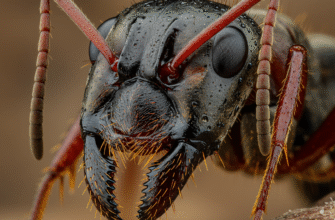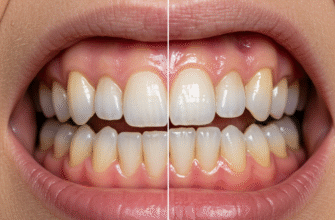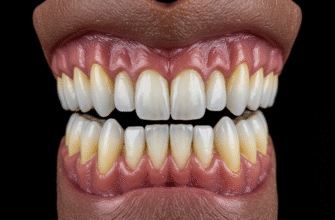Ever found yourself saying ‘bless you’ without a second thought? Or maybe you carefully tucked a lost baby tooth under your pillow, anticipating a visit from a magical being? These small acts are often remnants of ancient beliefs, cultural habits passed down through generations. Sneezing and losing teeth, everyday human experiences, are surprisingly rich with folklore and superstition across the globe. They tap into our age-old desire to understand the unseen forces around us, to find meaning in the mundane, and sometimes, just to have a bit of fun with tradition.
The Mysterious Sneeze: Blessings and Omens
The humble sneeze, that sudden, involuntary expulsion of air, has carried a hefty weight of supernatural significance for millennia. Why such a fuss over a nasal tickle? In many ancient cultures, breath was equated with life force or the soul itself. A powerful sneeze, therefore, could be seen as a dangerous moment where the soul might accidentally escape the body, leaving it vulnerable. Conversely, it was also thought that a sneeze could expel an evil spirit that had taken up residence, or, more worryingly, that an open mouth during a sneeze was an invitation for one to enter and cause mischief or harm.
This brings us to the almost universal response: ‘Bless you!’ or its equivalents in other languages like ‘Gesundheit!’ (health) in German, ‘Salud!’ (health) in Spanish, or ‘À tes souhaits!’ (to your wishes) in French. One popular theory traces the Western ‘bless you’ back to Pope Gregory the Great during the 6th-century plague in Rome. Sneezing was a dire symptom, and the blessing was a desperate plea for divine intervention against the deadly illness. Others suggest the phrase predates this, stemming from the older fear of expelling the soul or inviting spirits. Regardless of the precise origin, the sentiment was clear: a sneeze was a moment requiring a protective utterance.
The custom of saying “Bless you” after a sneeze is incredibly widespread. While its exact origins are debated, historical accounts suggest it became prominent in Europe during times of plague, where a sneeze could signify the onset of a fatal illness. The blessing was intended as a form of spiritual protection or a wish for good health in a vulnerable moment. This practice highlights how deeply superstitions can be embedded in social etiquette and persist through centuries.
The number of sneezes could also dictate your fate, at least according to folklore. One sneeze might simply be an acknowledgment, or in some traditions, a sign that someone is speaking well of you, or perhaps that what was just said is true. Two sneezes in a row? That could mean someone’s speaking ill of you, or it might be a sign of longing. Three sneezes, however, often turned the tables back to good fortune – perhaps a sign of good weather coming, a wish about to be granted, or even impending riches. It’s like a tiny, nasal lottery of omens, where the stakes change with each successive ‘achoo!’
And don’t forget the very persistent belief that if you sneeze, someone, somewhere, is talking about you. This one’s particularly popular and often invoked playfully. If your ears are burning, that’s another common sign, but a sneeze seems to be a more definitive psychic alert for many. Some traditions even get incredibly specific with a weekly forecast dictated by your nose: a sneeze on a Monday means danger ahead, on a Tuesday you might receive a kiss from a stranger, Wednesday brings news in a letter, Thursday promises something better, Friday is for sorrow, Saturday you’ll see your sweetheart tomorrow, and Sunday, your safety will be the sorrow of your foe. Imagine planning your week around such nasal prognostications!
In parts of East Asia, a sneeze might be interpreted based on who is present or what is being discussed, sometimes seen as an affirmation or a negation of a statement just made. The direction you turn your head while sneezing could also, in some older beliefs, influence whether you were inviting good or bad luck. It’s fascinating how such a simple bodily reflex has been so elaborately interpreted and imbued with power across so many different cultures for so long.
Tooth Traditions: From Fairies to Rooftops
Losing teeth, especially those first baby teeth, is a universal childhood milestone. And where there’s a universal experience, you can bet there’s a rich tapestry of superstitions and rituals woven around it. These traditions often aim to ensure the healthy growth of new teeth or to bring good fortune.
The Magic of Baby Teeth
The most famous ritual in many Western cultures is, of course, the Tooth Fairy. This benevolent sprite who exchanges lost teeth (traditionally placed under a pillow) for money or a small gift is a relatively modern myth, gaining widespread popularity in the early 20th century. She’s a charming figure, softening the sometimes ouchy experience of a wobbly tooth finally coming free, and turning it into an exciting, magical event for children.
But the Tooth Fairy is not the only magical collector of tiny ivories. In Spain and many Latin American countries, it’s not a fairy but a mouse, ‘Ratoncito Pérez’ or ‘El Ratón de los Dientes,’ who does the honors. Mice, with their strong, ever-growing teeth, are seen as symbols of dental fortitude. The hope is that by giving the tooth to the mouse, the child’s new adult tooth will be as strong and healthy as a mouse’s. Similar rodent-based traditions exist in France (‘la petite souris’) and other cultures.
Long before fairies and mice got involved in nightly exchanges, the disposal of lost baby teeth was a serious business, laden with meaning. A common practice across many cultures was to throw the tooth. Where you threw it, and how, was crucial for the future of the incoming tooth.
Common Tooth-Throwing Rituals:
- To the Sun or Moon: Throwing a tooth towards the sun or moon, often accompanied by a wish or chant (e.g., “Sun, sun, take this bad tooth and give me a good one!”), was believed to encourage a strong, bright new tooth to grow in its place.
- Onto the Roof: In many cultures, particularly in parts of Asia (like China, Japan, Korea, Vietnam) and Europe, children would throw a lower-jaw tooth onto the roof of their house and an upper-jaw tooth onto the ground or under the floor. The idea was that the new tooth would be guided to grow straight and strong in the right direction, following the trajectory of the thrown tooth.
- To an Animal: As with the mouse traditions, some cultures involved throwing the tooth to a specific animal (dog, squirrel, etc.) hoping the new tooth would emulate the animal’s dental strength.
- Over the Shoulder: Sometimes, a tooth was thrown over the left shoulder for good luck, or to ward off evil spirits or witches who might use the tooth for nefarious purposes.
These rituals weren’t just about getting a new tooth; they were about ensuring the right kind of tooth—strong, healthy, and well-aligned. Some cultures also believed that if an animal found and ate the tooth randomly, the child might grow a tooth resembling that animal’s, so proper, ritualistic disposal was key! Burying the tooth was another common practice. This could be done in the garden, symbolically ensuring the new tooth would be well-rooted and strong like a plant. The act of returning a part of the body to the earth was also seen as a way to maintain a connection with nature and ensure healthy growth.
Adult Tooth Loss and Ominous Dreams
While losing baby teeth is a celebrated rite of passage, losing an adult tooth is generally a less welcome event. Superstitiously, it can carry more ominous portents, especially in dreams. Dreams about losing teeth are incredibly common and often deeply unsettling, found across diverse cultures with surprisingly similar interpretations.
What could these distressing dreams signify? Folkloric interpretations often point towards negative outcomes:
Common Interpretations of Tooth-Loss Dreams:
- Impending Death or Sickness: A very old and widespread interpretation is that dreaming of losing a tooth, especially if it’s bloody or painful, foretells the death or serious illness of a loved one, or sometimes the dreamer themselves. The more teeth lost, or the more prominent the tooth (like a molar), the more significant the loss.
- Loss of Power or Control: Teeth are associated with strength, aggression (biting), and communication. Losing them in a dream can symbolize feelings of powerlessness, vulnerability, anxiety about one’s appearance, or difficulty expressing oneself effectively.
- Financial Worries or Loss: In some traditions, teeth can symbolize wealth or assets. Dreaming of them falling out might indicate anxiety about money, impending financial loss, or a fear of poverty.
- Major Life Changes or Transition: Just as losing baby teeth signals a transition, dreaming of adult tooth loss can sometimes be linked to anxieties about aging, significant unavoidable changes, or a fear of the unknown future.
- Hidden Deceit or Lies: Sometimes, it’s interpreted as a warning that someone is being deceitful, or that unspoken words (lies) are causing internal conflict or “rotting” away at one’s integrity.
It’s worth noting that modern psychology often views these dreams as manifestations of stress, anxiety, or feelings of insecurity, rather than literal prophecies. However, the consistency of the ‘losing teeth’ dream motif across cultures and its generally negative connotations in folklore are striking.
Beyond dreams, the actual loss of an adult tooth in waking life, if not due to obvious dental issues or injury, could also be seen superstitiously in some cultures as a sign of bad luck approaching or a weakening of one’s personal ‘mana’ or life force. The mouth, being a portal for nourishment and communication, holds symbolic power, and its integrity is often linked to overall well-being and fortune in the traditional mindset.
Why Do These Superstitions Endure?
So why do these beliefs about sneezes and teeth, some seemingly quite outlandish to the modern mind, persist? For our ancestors, the workings of the human body were often mysterious and, at times, frightening. A sudden sneeze or a tooth falling out could be alarming. Superstitions provided explanations, however fantastical, for these perplexing events. They offered a sense of control in a world where much was uncontrollable, a way to navigate perceived dangers or to encourage positive outcomes through ritual action.
These beliefs also served as social glue. Participating in these rituals, like saying ‘bless you’ or guiding a child through a tooth-loss ceremony, reinforces community bonds and cultural identity. They are threads connecting us to our past, little echoes of how our forebears made sense of their lives and their bodies. Even if we don’t consciously believe a sneeze will expel our soul, the ingrained habit of the blessing remains a part of our social fabric, a gesture of goodwill. These traditions are often passed down with affection and a sense of belonging, rather than a deep-seated fear of supernatural repercussions.
From the fear of a soul escaping with a sneeze to the hopeful toss of a baby tooth onto a rooftop, human cultures have spun an incredible array of superstitions around these simple bodily events. While modern science offers us clear physiological explanations for why we sneeze or why teeth fall out, the folklore endures with surprising tenacity. These beliefs are a testament to human creativity, our innate need for meaning-making, and the enduring power of tradition. They remind us that even the most ordinary aspects of our lives can be touched by a little bit of magic and mystery, passed down through whispers and rituals from one generation to the next, adding color and texture to the human experience.








